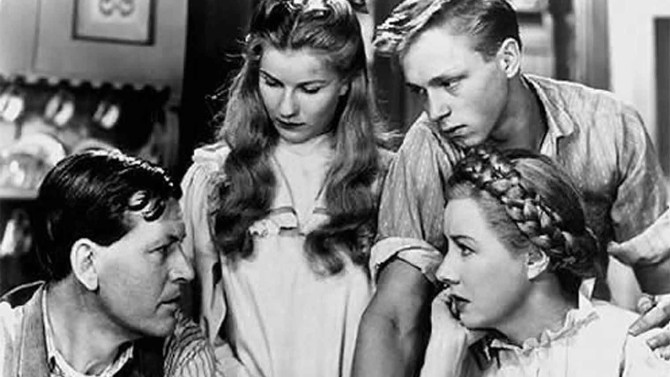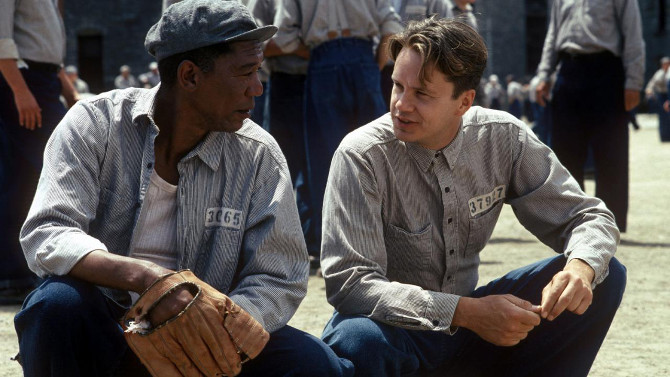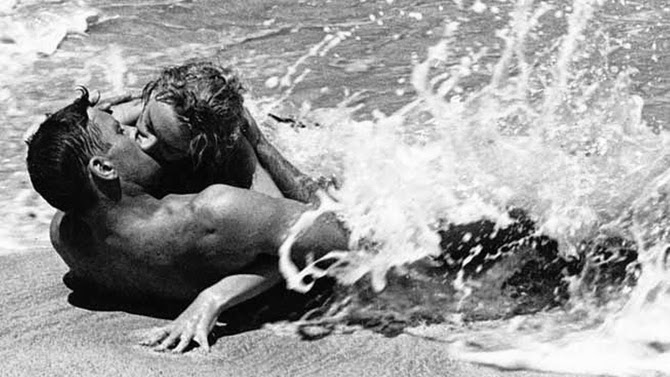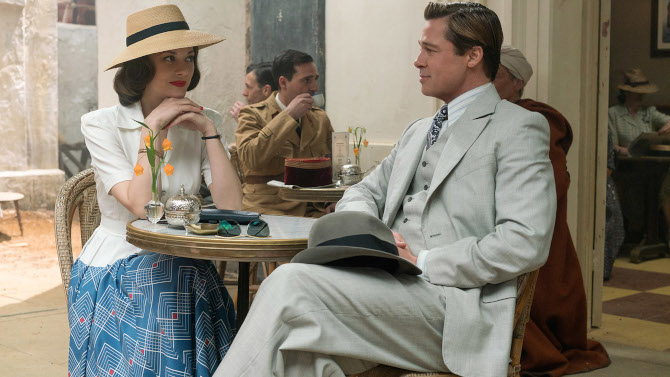
Déjà vu Dalliance
Channeling the mesmeric movies churned out by the studio system back in the 1930s and 40s, Allied (2016), directed by Robert Zemeckis, channels the likes of Morocco, Casablanca, Across the Pacific, Gilda, To Have and Have Not, and numerous others – attempting to find a spark from the classic themes of melodrama, romance, suspense and the epic nature of the annals of the cinematic past, with quite successful results. Set the year Casablanca and Across the Pacific were released – 1942, the story in fact starts in Morocco, with recently parachuted in Canadian spy Max Vatan (Brad Pitt) meeting up with another undercover agent, Marianne Beauséjour (Marion Cotillard), who will be pretending to be his wife.
-
Star Pick with Louise Sorel
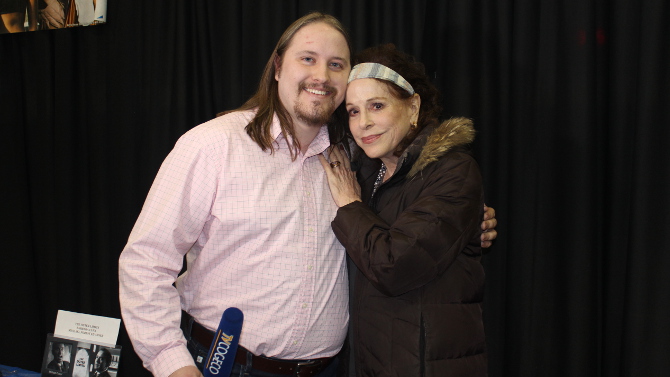 Mama Knows BestI Remember MamaJuly 26, 2016
Mama Knows BestI Remember MamaJuly 26, 2016The saying ‘they don’t make films like that anymore' is often bandied about when it comes to classic movies. It is something that is difficult to quantify or describe as to why it is so, but when you see it, it seems self evident. One motion picture that has this unusual quality is the 1948 film I Remember Mama. I recently spoke to Louise Sorel at CAPE Cornwall. You may recognize the actress if you are a fan of soap operas;
-
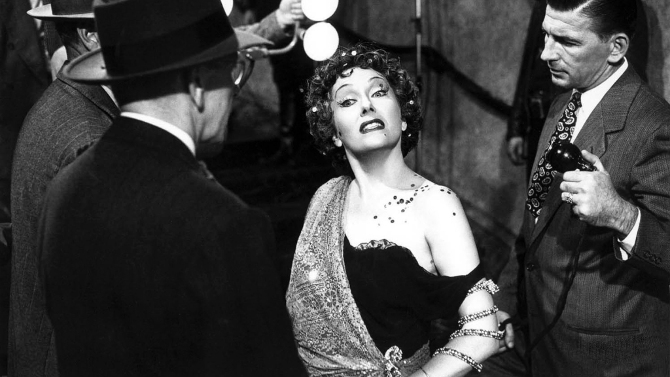
Boulevard of Broken Dreams
Sunset BoulevardJuly 17, 2016With the steamy heat of summer upon us, it is time to revisit one of my favourite genres – the dark, seductive, hard-boiled stories of film noir (from the 1940's and 50's). Billy Wilder, one of the great directors of the twentieth century, created three classics that fall within this genre: 1944's Double Indemnity (which I have already reviewed), 1951's Ace In the Hole and the 1950 iconic motion picture Sunset Blvd. – which will be reviewed here today.
-
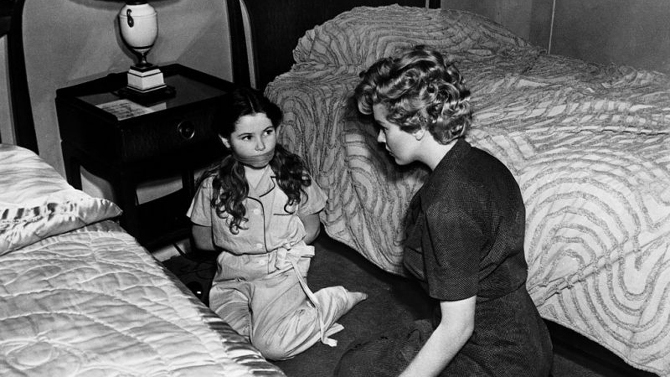
Don’t Knock It Till You Try It
Don't Bother to KnockJuly 15, 2016When one thinks about Marilyn Monroe’s acting career, they would likely imagine her performing in a light musical comedy in the vein of Gentlemen Prefer Blondes, How to Marry a Millionaire, The Seven Year Itch or Some Like It Hot. Yet, an early Monroe performance that may catch some off guard is when she plays Nell Forbes in the 1952 film-noirish drama Don’t Bother to Knock. Set entirely in a posh New York City hotel, bar singer Lyn Lesley (Anne Bancroft) has broken it off, by letter, with her beau Jed Towers (Richard Widmark), reasoning that he is too cold and does not have the heart for a long term relationship. The man arrives, booking a room in the hotel, hoping that he will win her back.
-
Star Pick with Dale Hawerchuk
 Taking a Drive with HawerchukThe Shawshank RedemptionJuly 12, 2016
Taking a Drive with HawerchukThe Shawshank RedemptionJuly 12, 2016On the 8th of July, 2016, I had the privilege of golfing with NHL Hall of Famer Dale Hawerchuk at Upper Canada Golf Course in Morrisburg, Ontario. For those of us who have played hockey, we understand how difficult it is to put up a point per game, whether we were playing house league, travelling team, or in the professionals. Hawerchuk impressively put up 1409 points in only 1188 games during his career, which spanned from 1981-1997. He spent most of his time with the Winnipeg Jets, but also played for the Buffalo Sabres for five years, the St. Louis Blues for a year, and wrapped up his career playing two years with the Philadelphia Flyers.
-
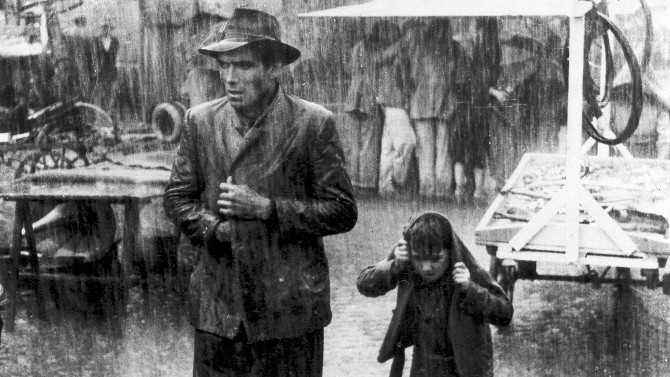
I Want to Ride My Bicycle. . .
Bicycle ThievesJuly 10, 2016Vittorio De Sica’s 1948 classic Bicycle Thieves is a prime example of Italian Neo-Realism. The genre, which spanned a short ten or so year period during the 1940s and 1950s, highlighted life of ordinary, working class (and often impoverished) individuals who were dealing with the stresses of day to day life in Italy during or shortly after World War 2. Previously, Italian filmmakers had had their artistic scope and perspective limited by the fascist government of Benito Mussolini (for more than twenty years) and this style of motion picture was a reaction to it. Filmed in a semi-documentary fashion (typically on a low budget), the streets of Rome and other cities were used instead of the safety of studios to depict relevant social themes of otherwise common people.
-
Star Pick with Beverly Washburn
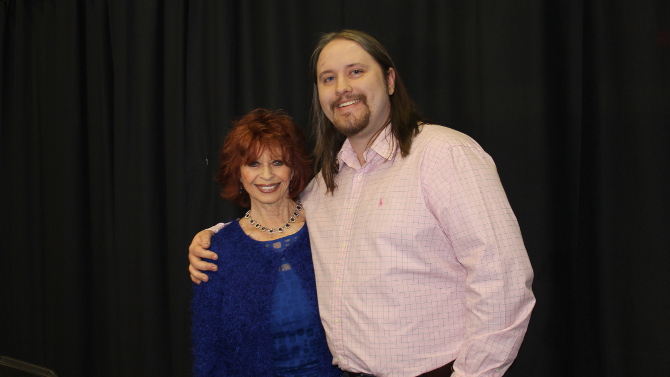 A Day at the BeachFrom Here to EternityJune 28, 2016
A Day at the BeachFrom Here to EternityJune 28, 2016Each generation has a select few films that push the boundaries of their era – changing the way in which people saw motion pictures and (usually) creating a new freedom for future filmmakers to delve deeper into those controversial themes that were first explored in the edgy flicks. One such movie is Fred Zinnemann’s 1953 motion picture From Here to Eternity. A major risk for Columbia at the time ), the decision paid off, as it was a major financial success and won eight Academy Awards (including Best Picture, Best Supporting Actor and Actress – for Frank Sinatra and Donna Reed, Best Director, etc.).

